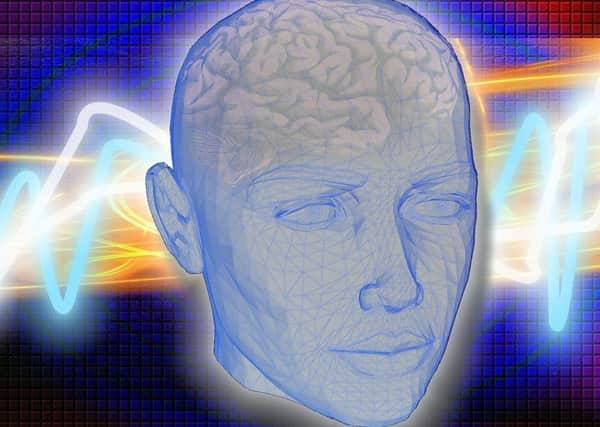Brain Injury Awareness Week: Trust invite to join ‘dander’ in Derry


The event will take place this Wednesday, May 22, at 1.00pm and those taking part will walk from Ebrington Square across the Peace Bridge to Guildhall Square.
The Trust are supporting Brain Injury Awareness Week from today, Monday May 20.
Advertisement
Hide AdAdvertisement
Hide AdThis year the specific issue being highlighted is fatigue – or excessive tiredness – one of the most commonly experienced effects of brain injury.
The Western Trust’s Community Brain Injury Service was originally established in 2002 under the auspices of the Foyle Trust.
The Service is organised through two locality based teams, one in Derry and one in Enniskillen, and has developed to include input from Occupational Therapy, Physiotherapy, Social Work, Nursing, Rehabilitation Assistants and Clinical Psychology.
The Service is a specialist resource to other service areas by offering advice, consultancy and specialist training on the complex nature of brain injury and the needs of those who have acquired a brain injury, their family and carers. To achieve this they have established links with other agencies including relevant voluntary and statutory organisations, and educational facilities.
Advertisement
Hide AdAdvertisement
Hide AdUnfortunately, brain injuries are continuing to steadily increase each year across Northern Ireland. It can happen in seconds but the effects can last a lifetime.
Approximately 3,600 people each year in the Western Trust area will attend hospital with an injury to their brain, but of these 85% will be mild in nature – a concussion. The other 15% will be moderate to severe in nature requiring care and support as a result of the brain injury and often the support will be required for the remainder of their life.
While males remain 1.5 times more likely to be admitted to hospital for injuries to their head and brain, the data reveals that women are increasingly at risk. The number of females being admitted to hospitals across the UK with non-superficial head injuries has risen by 23% since 2005-06, according to new statistics issued by brain injury charity Headway. Some of the factors that could help explain this startling statistic for women can include:
*The recently reported highest ever recorded level of domestic violence in NI by the PSNI
Advertisement
Hide AdAdvertisement
Hide Ad*The 32.9% increase in the over 85 year old NI population since 2007 (reported by NISRA) who unfortunately are at higher risk for falls and thus injuries to their brain
*Research published in The Lancet in January 2019 reported a significant increase in liver cirrhosis for women due to increased alcohol consumption. Alcohol is a major contributing factor in brain injuries sustained in falls, assaults and road collisions.
Our brains control everything we do, think and feel. They are the control centre that dictates our actions and reactions, and the pace at which they happen. They are our batteries, recharged with sleep and rest. But after brain injury, these batteries drain far more quickly and therefore need recharging on a much more regular basis – often every few hours. Added to this, sleep problems as a result of brain injury can make it more difficult to recharge and combat fatigue.
Brain functioning tends to be less efficient after an injury therefore it takes extra effort and attention to do even simple activities such as walking or talking clearly. Fatigue can have a negative effect on mood, physical functioning, concentration, memory and communication. It can interfere with the ability to work and can make activities such as driving more dangerous. But as with many of the hidden effects of brain injury, ‘pathological fatigue’ can be widely misunderstood – not just by those around us, but even by the individuals themselves.
Advertisement
Hide AdAdvertisement
Hide AdDr Shane McCarney, Consultant Clinical Psychologist and Community Brain Injury Service Lead Clinician for the Western Trust said: “Brain injuries may lead to a range of different problems such as personality changes, cognitive functioning (including memory loss), physical disabilities, speech and language difficulties and sensory loss. The Trust’s Community Brain Injury team help people with brain injury to recover, rehabilitate and regain their independence.”
The Trust said everyone attending the dander on Wednesday will be most welcome and refreshments will be provided.